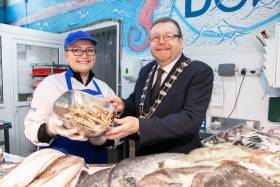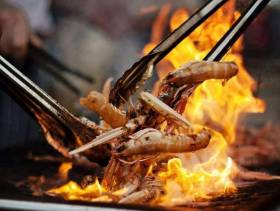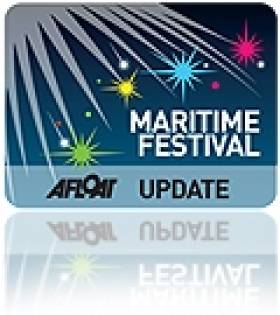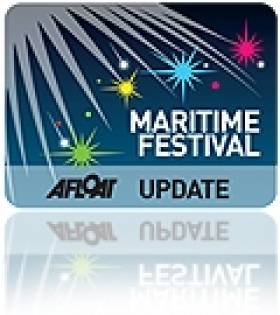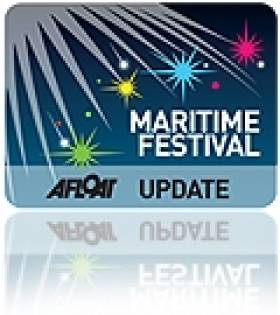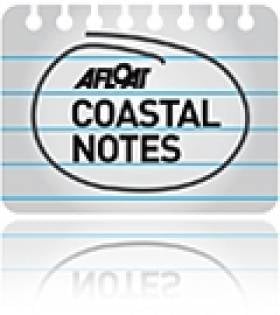Displaying items by tag: Dublin Bay Prawn Festival
Howth Yacht Club will be one of the hubs of the new-look Dublin Bay Prawn Festival next month.
Formerly held over St Patrick’s Weekend, this year’s festival has moved to 17-19 May and is expanding to better reflect the wealth of seafood options available fresh in the North Dublin port village.
And Howth Yacht Club has announced it will be an integral part of this year’s foodie festivities, following recent discussions with Fingal County Council.
The club will be opening its bar to visitors as well as hosting entertainment on an outdoor stage on a similar but smaller scale to last year’s Wave Regatta.
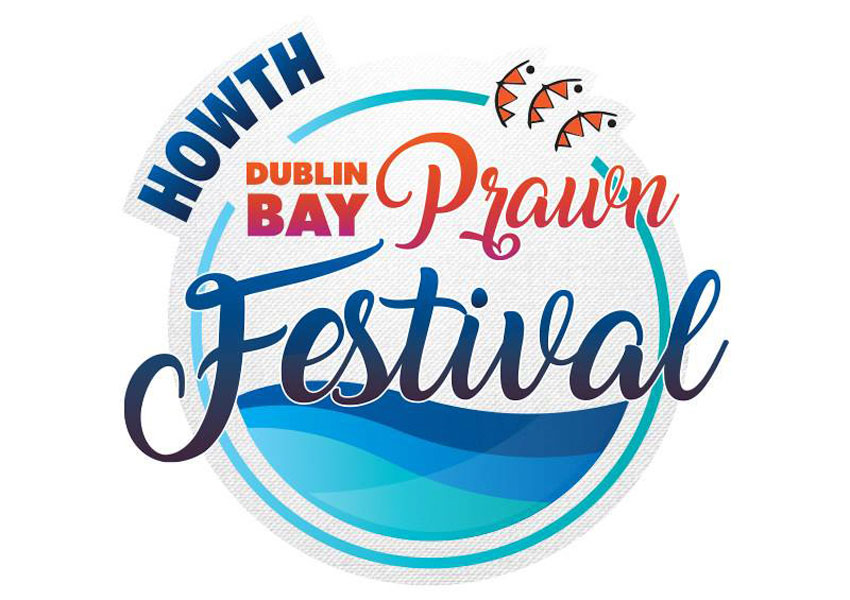
“This will be a ‘different’ event,” says HYC Commodore Ian Byrne, who adds that it “will serve the long-term interests and ambitions of the club.
“It will certainly be a very busy weekend and will help to make a great festival atmosphere.”
Byrne notes that Howth is presenting itself as ‘the Capital of Adventure’, and says HYC “will be key contributor through our dinghy and keelboat sailing experiences”.
“We hope that as many members as possible will enjoy the festival, and the organising committee would also be grateful for volunteer support,” he adds.
#SeaFoodFest - Linking in the St Patrick's Weekend is the Dublin Bay Prawn Festival (17-19 March) which offers three days filled to the brim with fun, food and delights to suit all.
The festival located in the apt setting of the fishing harbour village easily accessible by DART, offers many award winning restaurants along the West Pier and the on the food village’s main street.
So whatever way you like your prawns – barbecued, whole, shelled, fried, skewered, marinated, sauced – there’s no excuse not to indulge.
In addition there is the market offering local foods, fish filleting & fishery skills and a programme of family fun.
Neven Maguire will also be on hand in the food village as he will have live cooking demonstrations for all those budding cooks out there.
Why not as part of your day out visiting Howth explore offshore given the harbour’s wonderful backdrop of the island of Ireland’s Eye. The island which has sandy beaches, bird colonies and a ruins of monastery.
Ireland's Eye can be easily reached and explored by taking an excursion boat operated by Ireland’s Eye Ferries. They provide landing trips to Ireland's Eye and also to boat trips around the island. They run from 10:30am to 5pm from the West Pier. Weather permitting, the trips operate daily.
In addition why not take in the scenic coastal walks on Howth Peninsula which affords panoramic views. Firstly are those views overlooking Howth Harbour and to Ireland’s Eye, Lambay Island and further northwards to the Mountains of Mourne.
There are also in the opposite direction wonderful sweeping views facing south across the broad expanse of Dublin Bay and the peninsula's iconic landmark of the Baily Lighthouse perched above the sea. Beyond the bay this spectator vista is framed with the backdrop of the rolling hills and mountains of Wicklow.
Dublin Bay Prawn Festival Moves To March For St Patrick's Celebrations
#MaritimeFestivals - This year's Dublin Bay Prawn Festival is moving a month earlier to tie in with the St Patrick's festivities in Ireland's capital.
As ever, your favourite prawn dishes will be the star of the show at the food village in the heart of Howth from Friday 18 to Sunday 20 March.
The full programme of events is yet to be announced, but the three days of food and fun are set to kick off once again with the 'mystery dine-around' on Friday 18 March, with a wine reception and courses from some of Howth's finest seafood restaurants. (Tickets priced at €65 per head are going fast.)
In addition, this year's festival will feature an evening of music and dance celebrating Irish, Slovakian and Brazilian culture.
For more details are they are announced, visit the Dublin Bay Prawn Festival website HERE.
Dublin Bay Prawn Festival Gets Under Way
#MaritimeFestivals - The annual Dublin Bay Prawn Festival kicks off this evening (Friday 24 April) with the 'mystery dine-around', heralding a weekend of food and fun in Howth.
Whatever way you like your prawns – barbecued, whole, shelled, fried, skewered, marinated, sauced – Howth’s many award-winning restaurants will serve your favourite prawn dishes in bite-sized portions at the food village.
But around that focal point is a whole host of activities, including a funfair, live music and the vibrant village market.
Plus Howth's coastguard and lifeboat stations will be among the local institutions open on Saturday 25 and Sunday 26 April, educating on their invaluable water safety work.
Great Food, Great Fun At Howth's Dublin Bay Prawn Festival
#MaritimeFestivals - It's April, which means it's almost time for the annual Dublin Bay Prawn Festival - running this year from Friday 25 to Sunday 27 April.
Whatever way you like your prawns – barbecued, whole, shelled, fried, skewered, marinated or sauced – Howth’s many award-winning restaurants will serve your favourite prawn dishes in bite-sized portions at the Food Village adjacent to Howth Yacht Club.
But the food is just one part of a whole programme of events over the weekend that includes a mystery dine-around, historic walking tours of the North Dublin fishing village, and a 'Prawn Push' in aid of Howth RNLI.
And just like last year, Dublin Bay Cruises will be running special trips to Howth, this time from the city centre - so you can arrive at the festival by sea!
Full details of this year's Dublin Bay Prawn Festival are available on the official website HERE.
Arrive By Sea!...to the Dublin Bay Prawn Festival
#FestivalExcursion-Those heading for the Dublin Bay Prawn Maritime Festival (26-28 April) in Howth may consider an alternative and new way of reaching the north Co. Dublin fishing harbour with Dublin Bay Cruises which began operations last week, writes Jehan Ashmore.
The excursions run between Dun Laoghaire (East Pier) and Howth and are offered as a one-way trip (in either direction) between the harbours.
Passengers will be able to make their way back to the city-centre from either Dun Laoghaire or Howth harbours by taking the DART train (concessionary price) or use of other public transport links.
For the festival, Dublin Bay Cruises are also providing special 'Prawn Festival Cruises' on Saturday (27 April) with cruises departing Howth Harbour (at 13.30 and 15.30). These cruises will head out around Howth Peninsula and into Dublin Bay before returning back to the harbour.
All the excursions are operated by 'St. Bridget', a 26m steel-hulled vessel with a capacity for around 100 passengers and which has a bar facility serving light refreshments.
In addition there are shorter trips from Howth Harbour to Ireland's Eye and 'round' the island excursions which are operated by Ireland's Eye Ferries and Island Ferries.
Also taking place on the Saturday, as previously reported on Afloat.ie, there is to be a Prawn Push in aid of Howth RNLI beginning at 3pm.
Dublin Bay Prawn Festival Heads for Howth
A Sampi trail will be held in various pubs and hotels on the Friday night starting at 7pm, no booking is required. On the Saturday afternoon there is a Prawn Shelling Competition starting at 2.30pm.
Howth Yacht Club will open its doors to public viewing on the Saturday and the Howth Coastguard Station (West Pier) will also be open on that day too in addition to the Sunday. The West Pier is also to host a Fishing Techniques demonstration on Sunday at 3pm.
On the mornings of Saturday and Sunday a self-guided walk from Howth to up to Howth Hill taking up to two hours will meet at The Courthouse at 10am. The walk which is to be pre-booked and registered online is also suitable for families. The route is weather dependant and will follow one of the four looped walks.
The Irish Seal Sactuary will be offering a seal watching tour and harbour walks guided by volunteers on the Saturday and Sunday. An information stand will be made available for more details click www.irishsealsanctuary.ie
Throughout the weekend there will be all day events which include island boat / eco tour trips and the National Transport Musuem, noting that these activities will be charged. It should be noted that festival programme is provisional and is subject to change.
For more information about the full festival programme logon HERE and by contacting Howth Tourist Office on 01 8396955 and by email: [email protected]


























